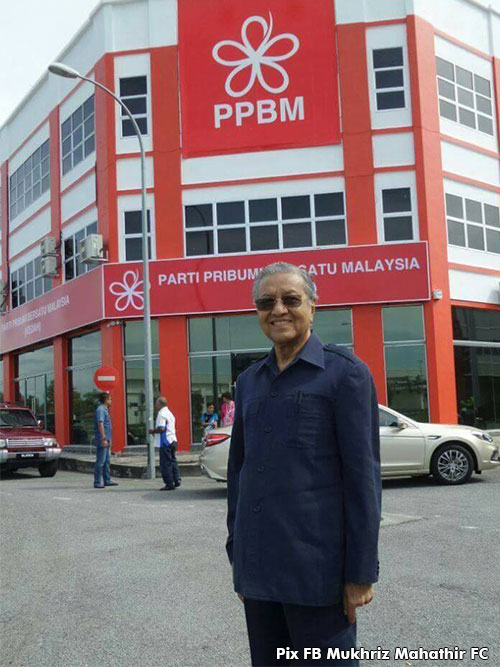ADUN SPEAKS | Pakatan Harapan, or any political coalition that wants to "reclaim Malaysia", must take significant steps in addressing the plight of numerically small groups, groups that have been pushed aside by the discriminatory policies of the BN regime.
Harapan should not make the mistake of "wishing away" differences, just because a structure has been put in place. It is not about the structure alone, but bringing about broads forms of representation for those affected groups.
Indian representation in political coalitions will remain problematic for two reasons. One is the factor of their numerical weakness and the other is related to the ethnic composition of the parties in coalitions, whether in Harapan or in BN.
Even if political parties are termed as multi-racial or multi-religious, the fact remains some of these parties do not have significant proportion of Indian members. Two political parties in Harapan - Parti Pribumi Bersatu Malaysia (bersatu) and Parti Amanah Negara (Amanah) - being political parties organised along ethnic and religious lines, their membership consist solely of Malays. It would be impossible for these political parties to bring in non-Malays.
So when we are talking about Indians being represented in Harapan, reference is made only made to the DAP and PKR. In the Harapan national structure, there is only one Indian from the DAP. PKR, which has considerable Indian membership, is yet to live up to is reputation as a multi-racial or multi-religious party. To date, Indian participation in Harapan comes from one source, that is, the DAP.
 It is strange that Harapan chairperson Dr Mahathir Mohamad talked about the lack of Indian participation in reference to bringing in Hindraf into the coalition, without realising that his own political party, Bersatu, is another race-based party. In fact, Mahathir himself realised that he was in no position to ask the DAP or PKR to increase Indian participation, simply because his party is not multi-racial or multi-religious in the first place.
It is strange that Harapan chairperson Dr Mahathir Mohamad talked about the lack of Indian participation in reference to bringing in Hindraf into the coalition, without realising that his own political party, Bersatu, is another race-based party. In fact, Mahathir himself realised that he was in no position to ask the DAP or PKR to increase Indian participation, simply because his party is not multi-racial or multi-religious in the first place.
Mahathir might be right in justifying the formation of the Bersatu to weaken Umno, but he is not sure whether this is the right form of Malay representation, given the general changes that are fast taking place in the country.
Some are arguing it is no point to talk about Indian representation, or for that matter, ethnic representation when Harapan is trying to move beyond the parameters set by BN. One Indian leader in Harapan went to the extent of saying that it is possible for non-Indian leaders to represent the Indian community, even if Indian leaders are not available.
Perhaps a time will come when Malaysians from different racial and religious backgrounds will be able to accept leaders who might not come from their own communities. However, such a day has not arrived. Malaysians, whether they are Chinese, Malays or Indians or any others, accept leaders from their own ethnic communities. There is nothing wrong with this.
Ethnicity is not an epi-phenomenon; something that is superficial that will disappear once other matters are sorted out. Ethnicity is not a subjective; it is very much structured in the country for the last 60 years or so. In fact, even class antagonisms often manifest along ethnic or even religious lines.
In other words, PH leaders in terms of working political representation for all ethnic communities, especially communities that were discriminated and marginalised, should take ethnicity seriously. Indians can easily fall into the category of an affected community.
While Indians want good leaders, but at least for the time being they want their community to be represented by their own leaders. This is not asking too much, is it?
VI Lenin, the former leader of the Soviet Union and the architect of the October 1917 revolution, said that the march towards to the final political destination must be made by recognising national differences, a move he described as "two steps forward, one step backward".
P RAMASAMY is Deputy Chief Minister II of Penang and the state assemblyperson for Perai.
The views expressed here are those of the author/contributor and do not necessarily represent the views of Malaysiakini.

